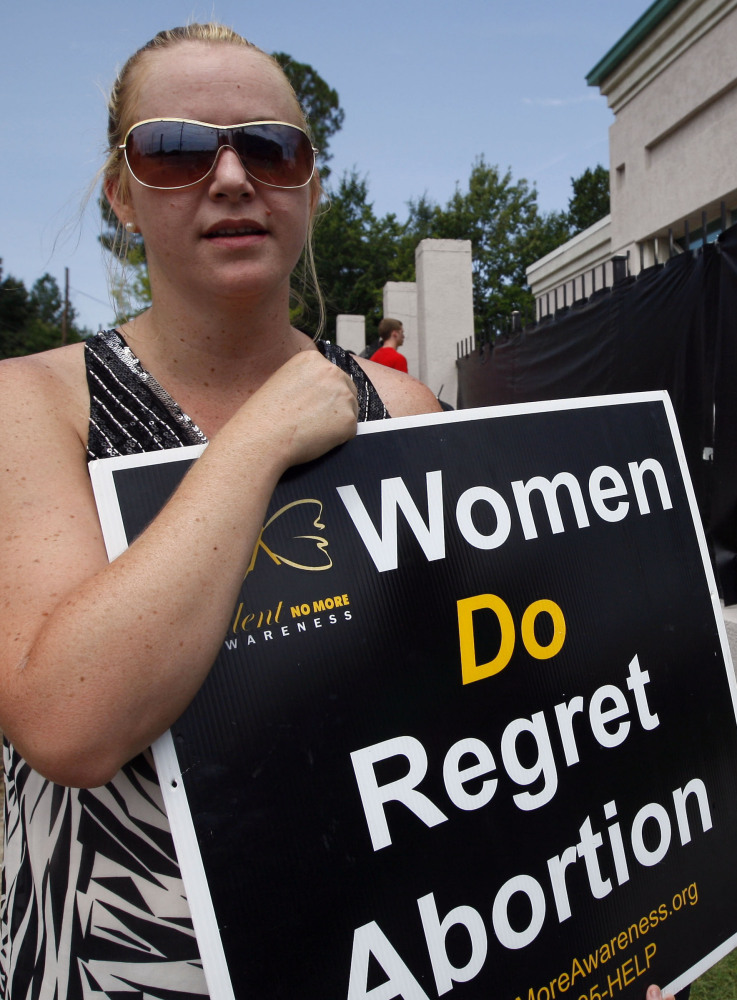JACKSON, Miss. — From Texas to Alabama, laws are being enacted that would greatly restrict access to abortion, forcing many women to travel hundreds of miles to find a clinic. The laws, requiring abortion doctors to have privileges to admit patients to local hospitals, could have a profound impact on women in poor and rural sections of the Bible Belt.
In many places in the South, clinic doctors come from out of state to perform abortions and don’t have ties to a local hospital. Critics say the laws mean hospitals, leery of attracting anti-abortion protesters, could get veto power over whether the already-scarce clinics remain in business. They say the real aim is to outlaw abortions while supporters say they are protecting women’s health.
The laws are the latest among dozens of restrictions on abortions that states have enacted in the past two decades, including 24-hour waiting periods, parental consent and ultrasound requirements.
“You’re looking at huge swaths of the country where women’s options are becoming severely limited,” said Amanda Allen, state legislative counsel for the New York-based Center for Reproductive Rights.
The requirements are already in effect in Texas and Tennessee. Laws in Mississippi and Alabama are on hold during court challenges. Louisiana and Oklahoma are about to enact their laws, which would bring the total to 10 states, according to figures from the Center. If the law there is upheld, Mississippi’s lone abortion clinic would have to close, meaning women in some parts of the state would have to travel at least three hours to an out-of-state clinic.
Republican Gov. Phil Bryant bluntly gave one reason for signing that law in 2012: “…we’re going to try to end abortion in Mississippi.”
The Center for Reproductive Rights says besides the South, other states with the laws are in the Midwest or the West – Kansas, North Dakota, Utah and in Wisconsin, where it is being challenged in court this week.
Send questions/comments to the editors.



Success. Please wait for the page to reload. If the page does not reload within 5 seconds, please refresh the page.
Enter your email and password to access comments.
Hi, to comment on stories you must . This profile is in addition to your subscription and website login.
Already have a commenting profile? .
Invalid username/password.
Please check your email to confirm and complete your registration.
Only subscribers are eligible to post comments. Please subscribe or login first for digital access. Here’s why.
Use the form below to reset your password. When you've submitted your account email, we will send an email with a reset code.